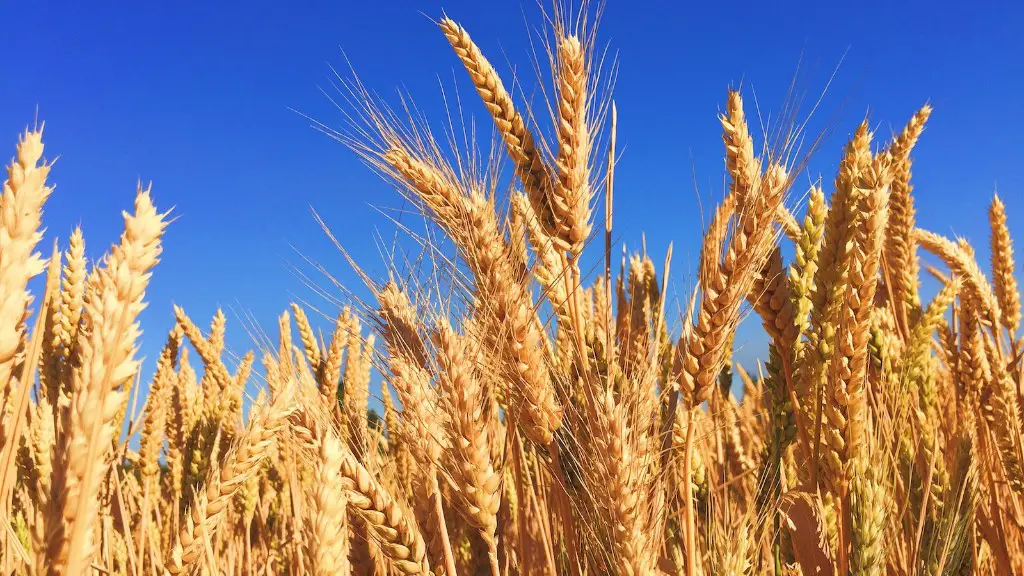Ecological agriculture is an approach to agricultural production that focuses on the use of renewable resources and soil management practices to enhance the health of the land, its ecosystem and its inhabitants. It utilizes traditional farming techniques and technologies, and focuses on the interrelatedness of living systems as they interact with the environment. Ecological agriculture applies principles of ecological science to the natural production of crops and livestock, and to their associated environmental impacts. It seeks to maximize efficiency in the use of natural resources, reduce pollution and improve the quality of food production.
Types of Ecological Agriculture
There are various types of ecological agriculture, including organic agriculture, integrated organic agriculture (IOA) and agroecology. Organic agriculture seeks to avoid or limit the use of synthetic inputs such as chemical pesticides and fertilizers. It emphasizes the use of cultural, biological and mechanical control methods as alternatives to synthetic inputs. Integrated organic agriculture (IOA) combines traditional farming methods with modern technologies to maximize efficiency while having a low environmental impact. Agroecology applies ecological principles and concepts to the production of food and aims to maximize the potential of the existing agro-ecosystem.
Benefits of Ecological Agriculture
There are numerous benefits of ecological agriculture, such as enhanced soil fertility, improved water and air quality, reduced costs of input use, increased yields, and improved crop quality and resistance to pests and diseases. By improving soil fertility, ecological agriculture helps to increase crop yields and reduce the need for expensive and potentially damaging chemical inputs. Furthermore, by reducing runoff and preventing soil erosion, it helps to improve water quality, reduce their impacts on surrounding ecosystems, and improve air quality. In addition, ecological agriculture has the potential to increase market access for smallholder farmers and reduce reliance on external inputs.
Challenges of Ecological Agriculture
Despite the benefits of ecological agriculture, there are also some drawbacks associated with this approach. For example, it requires a significant amount of time and effort to develop and maintain a balanced and diverse agro-ecosystem in order to successfully produce crops. In addition, there can be a considerable cost associated with transitioning to ecological agriculture due to the need to purchase the necessary equipment and supplies. Furthermore, while the initial investment might be a barrier to entry, higher yields and better quality crops will increase farmers’ income and thus help to offset the costs.
Impacts of Ecological Agriculture
The impacts of ecological agriculture extend beyond the farm and can positively impact the environment and society at large. In addition to improving the environment and public health through enhanced air and water quality, ecological agriculture also has potential to increase food security and reduce rural poverty. Research has also demonstrated that ecological agriculture can provide a buffer against climate change, by enhancing the resilience of agricultural production systems to shocks and disturbances.
Tools of Ecological Agriculture
There are numerous tools of ecological agriculture that can be used to maximize the potential of agroecosystems. These include cover cropping, composting, mulching, crop rotation, integrated pest management, nutrient management, and soil conservation practices. Cover crops are planted in between cycles of main crops and can provide a number of benefits such as improving soil fertility, suppressing weeds and providing habitat for beneficial insects. Composting is a process of decomposing organic matter that helps to improve soil structure and fertility. Mulching involves applying a layer of organic material such as straw, bark, or grass clippings over the soil surface to reduce soil temperatures, suppress weeds, and conserve soil moisture. Crop rotation is the practice of growing a variety of different crops in the same field in order to build soil fertility, reduce pest and disease pressure and improve soil structure. Integrated pest management is a holistic approach to the control of pests that combines cultural, biological, and chemical control methods to prevent pest populations from becoming a major problem. Nutrient management involves the planning, processing, and application of fertilizers needed to promote high quality crop production. Soil conservation practices such as terracing, contouring, and strip cropping help to reduce soil erosion and nutrient runoff.
Organic Certification of Ecological Agriculture
Organic certification is a process used to verify the production practices used on a farm meet the standards of a recognized organic system. The organic certification process typically includes an on-site inspection to ensure that a farm meets the standards of an approved certification program. Certification helps to ensure that ecological agriculture is used properly and allows consumers to make informed decisions when purchasing agricultural products. Certified organic products typically have higher prices, which can help to incentivize farmers to adopt ecological agricultural practices.
Economic Impacts of Ecological Agriculture
The economic impacts of ecological agriculture are significant and can play an important role in a healthy agricultural economy. Organic and agroecological production systems can make a significant contribution to rural economic development. In addition to helping to reduce rural poverty, organic and agroecological systems can help to create employment opportunities, increase incomes, and improve access to markets and services. Furthermore, these systems can provide ecological and social benefits that are beneficial to both the environment and society.
Environmental Impacts of Ecological Agriculture
The environmental impacts of ecological agriculture are wide-ranging, but are primarily focused on reducing pollution and waste, conserving biodiversity, and improving soil fertility. For example, by moving away from the use of chemical fertilizers, ecological agriculture can help to reduce the emission of harmful pollutants into the environment. In addition, ecological agriculture can help to protect biodiversity, by protecting wild habitats and promoting agricultural systems that rely on local biological diversity. Finally, by improving soil fertility, ecological agriculture can help to reduce soil erosion, which can lead to increased water availability and improved crop yields.
Social Impacts of Ecological Agriculture
The social impacts of ecological agriculture cannot be understated. By providing greater food security and reducing rural poverty, ecological agriculture can help to improve the lives of smallholder farmers and their families. In addition, ecological agriculture has the potential to improve access to markets for smallholder farmers, and to provide a more equitable distribution of resources. By fostering more sustainable and equitable agricultural systems, ecological agriculture has the potential to improve farmers’ lives while contributing to the broader goals of sustainable development.


